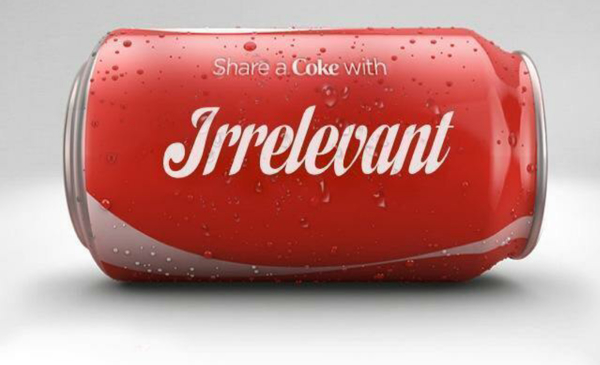
If I told you that the consumer to brand relationship has undergone significant change, I’m sure you would reply and say, “Tell me something I don’t know.”
A 2015 study by Havas Media Group found that most people would not care if 74% of all brands disappeared completely, and only 28% are said to notably improve people’s quality of life.
Brands are becoming irrelevant because they are failing to do what it takes to survive in the 21st Century with customers. Customers want brands to “pivot” more to fit their wants and needs and the way to do that is for brands to provide service and solutions using two-way communications. Yet the majority of brands and brand managers are trying to simply grow emotional love using tired tactics like television commercials, pre-roll video, display ads and static social advertising.
Today’s digital savvy consumers are more empowered than ever. As a result, we’ve become less responsive to traditional brand messaging, thus diminishing the power and influence of brands. The recent proliferation of ad-blocking technology proves that the social web is no longer a place which affords brands unlimited access to consumers.
In the digital age, the traditional rules of branding (big ideas, long-term margins, and emotional appeal) seem to be obsolete in an economy where consumers increasingly prefer products or services that provide convenience and top class user experiences.
So, what are the pivots brands need to make? Here are three…
1. Be Meaningful. In that same Havas study, brands considered meaningful around the world can expect 46 percent more share of wallet than less meaningful brands. So, what makes a brand meaningful? Customers now expect brands to be making tangible improvements to our personal well-being by making daily routines easier, helping us to stay healthy, connecting us to loved ones and being there for us when we need advice. We also expect brands to play increased roles in our communities through event sponsorships or Corporate Social Responsibility initiatives for our collective well-being. Expectations are also high that brands deliver on their functional benefits, making constant and relevant improvements to products and services. In an era of politics, many now say brands need to pay their fair share in the form of taxes and transparency. The downfall of not pivoting could be immense. Many customers have said they will pivot to finding other companies they can support who they feel support their community.
2. Listen. Brands have always taken the approach of talking and amplifying and never shutting up. But now that communication power is more democratic, customers want brands to listen to them. They want brands to take advice on how they can improve their customer experience, their products, their supply chain management and their shipping policies. Customers use products a lot yet brands have a tendency of ignoring customers in what amounts to the best form of product surveying ever. Brands need to not simply survey, but invite their most influential users to their offices annually to see how they improve the experience.
3. Empower. Meaningful brands drive emotional well-being by empowering self-esteem, self-expression and social status. Sportswear brands like Nike and Under Armour encourage us to fulfill our true potential and improve our skills, while food brands are offering more nutritional advice. Even the company I work for, Microsoft, has a motto that ties into this in how technology can enhance our lives: “Empower every person and every organization on the planet to achieve more.”
Read more about how to remain relevant in the 21st Century with your brand in my new book Disruptive Marketing.
The Blake Project Can Help: Accelerate B2C and B2B Brand Growth Through Powerful Emotional Connections
Branding Strategy Insider is a service of The Blake Project: A strategic brand consultancy specializing in Brand Research, Brand Strategy, Brand Licensing and Brand Education
FREE Publications And Resources For Marketers











